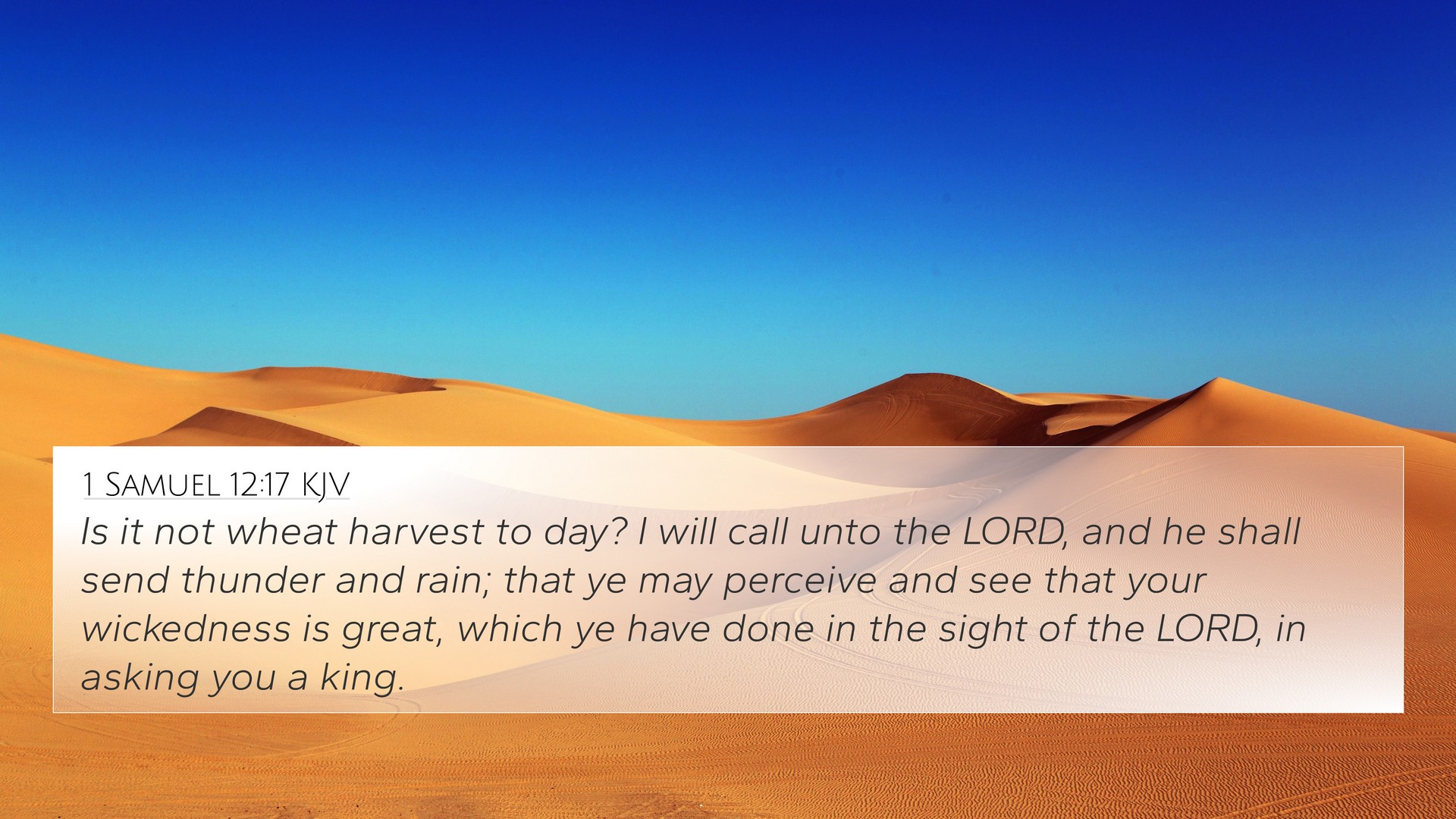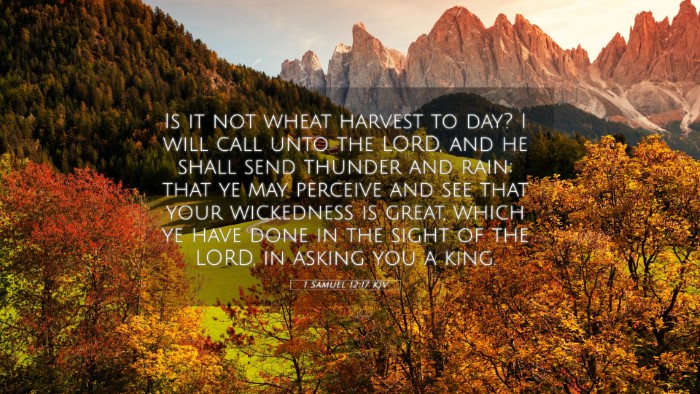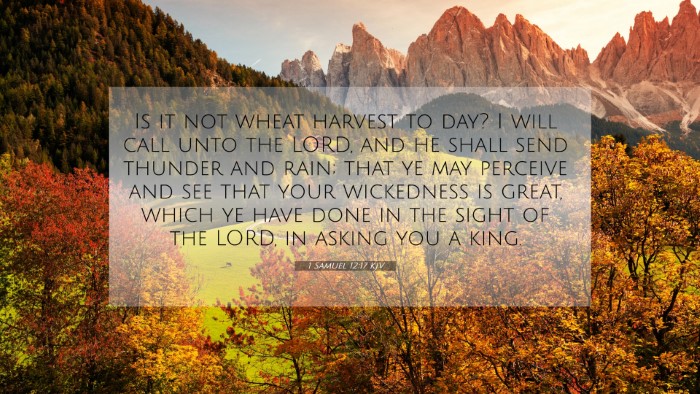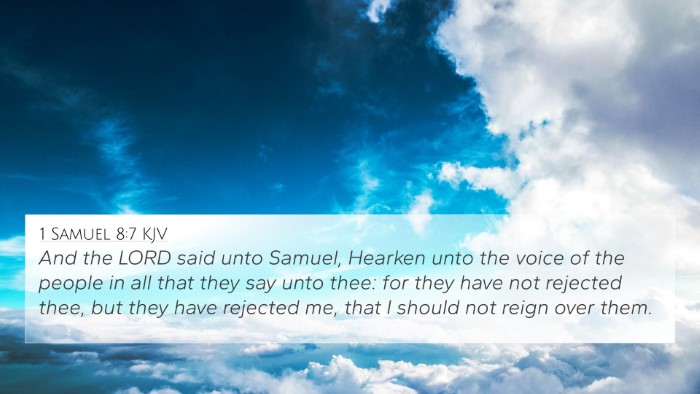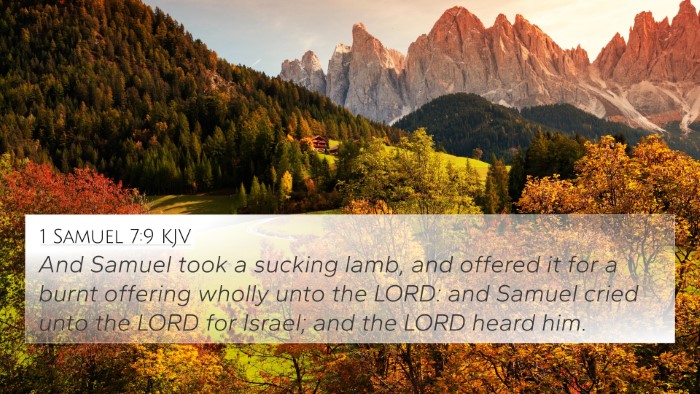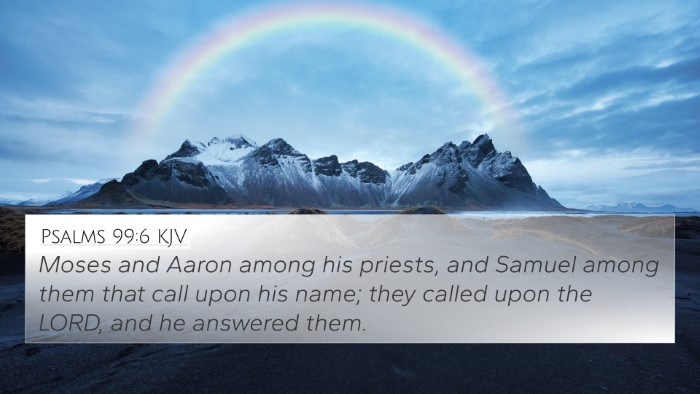Understanding 1 Samuel 12:17
1 Samuel 12:17 states: "Is it not wheat harvest today? I will call unto the Lord, and he shall send thunder and rain; that ye may perceive and see that your wickedness is great, which ye have done in the sight of the Lord, in asking you a king."
Summary of the Verse
This verse occurs during a significant moment in Israel's history when Samuel is confronting the people regarding their choice to reject God as their king and demand a human ruler instead. Samuel indicates that he will demonstrate God’s power using signs in nature, specifically thunder and rain, to reveal the seriousness of their sin.
Commentary Insights
The insights provided by various public domain commentators shed light on the deeper meanings found in this passage:
-
Matthew Henry: Henry emphasizes the gravity of Israel's demand for a king, viewing it as an affront to God's sovereignty. He reflects on how the natural phenomenon Samuel invokes serves as a reminder of God's authority and how Israel's actions are deserving of divine judgment.
-
Albert Barnes: Barnes focuses on the prophetic nature of Samuel's statement, expressing that the coming thunder and rain serve not only as a display of God’s might but also as an indication of the people's sinful rejection of the divine. He highlights the importance of understanding God's messages delivered through earthly signs.
-
Adam Clarke: Clarke notes the symbolic reference to the wheat harvest, suggesting that this timing shows God’s meticulous control over agriculture and nature. He interprets the call for rain as an intervention that could lead the people to repentance.
Key Themes and Biblical Connections
This verse opens a rich dialogue on several important themes:
-
Rejection of God: The people's demand for a king signifies a deeper rejection of God’s authority, echoing themes found throughout Scripture, such as in 1 Samuel 8:7 where God informs Samuel that the request for a king reflects a heart turned away from Him.
-
God’s Sovereignty: The manifestation of thunder and rain represents God's control over creation, resonating with verses like Job 38:1-2, where God speaks out of the whirlwind to assert His dominion.
-
Repentance and Recognition of Sin: The verse serves a dual purpose: to call out sin while encouraging repentance, paralleling the message in Acts 3:19, where Peter urges the people to "repent and turn back" to God.
-
Covenantal Faithfulness: The context reveals God’s faithfulness despite human unfaithfulness, akin to the themes found in Deuteronomy 7:9 which reflects on God's enduring covenant with Israel.
-
Divine Discipline: The signs shared by Samuel foreshadow God’s disciplinary actions when His people stray from His path, mirroring the warning in Hebrews 12:6, which discusses God's discipline of His children.
-
Power of Prayer: Samuel’s call for divine intervention points towards the power of prayer and God's responsiveness, a theme richly detailed in James 5:16 where prayer is depicted as effective and powerful.
-
Nature as God’s Messenger: Throughout Scripture, nature often acts as a messenger of God’s will, a concept also presented in Psalms 27:4, where the beauty of creation reflects His glory.
Cross-Referencing Biblical Texts
When seeking to understand this verse, several other passages can be linked for deeper insights:
- 1 Samuel 8:7 - God explains Israel’s rejection of Him as their king.
- Job 38:1-2 - God's might and authority over the natural world.
- Acts 3:19 - The call to repentance and returning to God.
- Deuteronomy 7:9 - God’s faithfulness to His covenant.
- Hebrews 12:6 - The concept of divine discipline.
- James 5:16 - The effectiveness of prayer.
- Psalms 27:4 - Nature reflecting God's glory.
Practical Application
This verse challenges modern readers to consider their own relationship with God. As Samuel reminds the people of their sin, individuals today are encouraged to reflect on their own lives and recognize areas where they may have strayed from divine guidance.
- Self-Reflection: Analyze personal decisions and heart attitudes that may reflect a disregard for God’s sovereignty.
- Embracing Repentance: Consider the importance of acknowledging sin and seeking a restored relationship with God.
- Prayer as a Response: Utilize prayer as a means to invite God’s intervention and guidance in life’s decisions.
- Nurturing Faithfulness: Encourage commitment to God despite worldly influences, remembering His longstanding faithfulness.
Conclusion
1 Samuel 12:17 serves as a poignant reminder of the consequences of rejecting God as king. Through the insights of respected commentators, the connections made with other Scripture, and the lessons on repentance, divine authority, and human frailty, believers today can approach this verse with renewed understanding and application.
Further Study Suggestions
Engage in a cross-reference Bible study by taking the concepts from 1 Samuel 12:17 and exploring how they relate to other passages. Use tools like a Bible concordance or a cross-reference guide to facilitate deeper study:
- Explore the link between the Old and New Testaments.
- Study parallels between Samuel's warnings and New Testament teachings on obedience and sin.
- Investigate the narrative of Israel's kingship in the context of God’s overarching plan for redemption.
